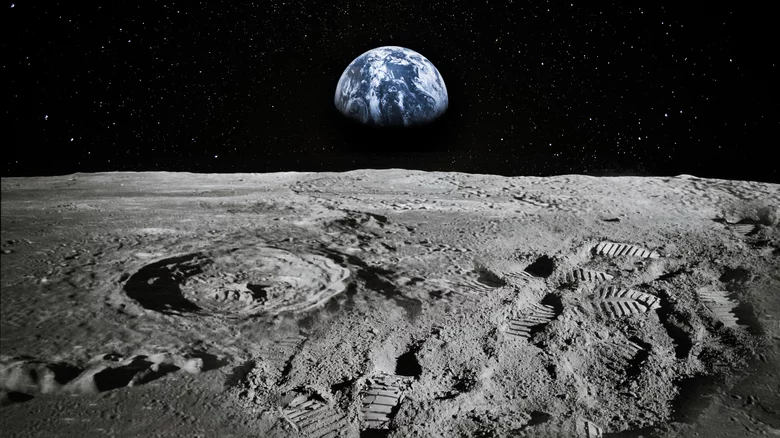For Those Who Place Excessive Trust in Science
I notice many individuals seeking “disclosure”, but what does that truly signify for you and for us collectively?
Without personal experience, contact, or sightings, what would it take to persuade you? If your answer includes science, consider this:
Science has, in many respects, evolved into a contemporary dogma. While its fundamental principle is skepticism and the quest for truth, it often behaves like a belief system—one that enforces conformity, stifles dissent, and resists significant shifts in perspective. This is particularly ironic, given that science once challenged established dogmas, as exemplified by Galileo’s conflict with the Catholic Church.
Science as a Determinant of Reality
Many individuals accept scientific claims without question, treating science as an authority rather than a methodology. Consequently, science influences their understanding of reality much like religion or political ideologies once did. Here’s how this unfolds:
- Gatekeeping Knowledge
- Institutions decide which concepts are “acceptable” and which are deemed “fringe” or “pseudoscientific”.
- This creates an intellectual echo chamber where alternative viewpoints, regardless of compelling evidence, are quickly dismissed.
-
For instance, theoretical physics allows for imaginative speculation (string theory, multiverses, etc.), while archaeology is bound by rigid, outdated narratives.
-
The Illusion of Scientific Consensus
- When scientists collectively endorse a narrative, it’s often presented to the public as a settled truth, even amidst existing debate within scientific circles.
- An example is the Younger Dryas impact hypothesis (the idea that a comet caused significant climate changes), which was initially disregarded but is now gaining traction.
-
Scientific “truth” frequently mirrors the beliefs of the majority at a given time—dangerous, as truth isn’t determined by a vote.
-
Science as an Instrument of Power
- Governments, corporations, and elites fund and manipulate science to align with their interests.
- For example, the pharmaceutical industry finances a substantial portion of medical research, shaping our views on healthcare, medicine, and nutrition.
-
When “science” dictates laws, economic policies, and public regulations, it veers dangerously close to a secular religion, where dissenters are labeled as heretics (often branded “conspiracy theorists”).
-
Materialist Reductionism Restricts Perception
- Modern science is grounded in materialism, the belief that only physical matter is real, dismissing anything that cannot be empirically measured.
- This viewpoint disregards consciousness, metaphysics, and non-material explanations, even as quantum physics reveals a far more complex reality than materialists acknowledge.
- While many ancient cultures recognized unseen forces (energy, spirit, mind-over-matter), modern science often ridicules such beliefs, despite findings (like quantum entanglement and the observer effect) that challenge those assumptions.
Does Science Shape Our Reality?
It certainly influences our shared experience, orchestrating a world governed by scientific authority, technology, and institutional control over knowledge. However, science does not define absolute reality; it interprets it within the limits of human understanding.
If science steers our perceptions, and perceptions in turn create our reality, then those who control science effectively shape the world. But what happens when that science is flawed, manipulated, or deliberately misleading? Our collective reality risks being crafted not by truth, but by the agendas of those who wield knowledge.
Liberating Ourselves from Scientific Dogma
– Cultivate independent thought: Question the mainstream narrative, even when it bears the “scientific” label.
– Prioritize evidence over authority: A peer-reviewed article doesn’t guarantee truth.
– Embrace diverse paradigms: Science, spirituality, and ancient wisdom may each offer fragments of the truth.
– Explore suppressed knowledge: Many breakthroughs emerge from so-called “fringe” ideas

You raise some compelling points about the dynamics between science, perception, and authority. It’s true that many people tend to view science as an unquestionable authority rather than a method of inquiry, which can lead to a rigid adherence to currently accepted beliefs. This dogmatic perspective can restrict open-minded exploration of new ideas and evidence.
To address your questions about disclosure and what it would take to convince skeptics, it might be useful to foster a culture where curiosity and critical thinking are prioritized over blind acceptance of established narratives. Encouraging diverse viewpoints within the scientific community can pave the way for broader discussions that incorporate both empirical evidence and more subjective experiences.
Your ideas about breaking free from scientific dogma are essential. Embracing a multiplicity of paradigms can enrich our understanding of reality. It’s crucial to remain open to alternative explanations and to recognize that science is constantly evolving. Historical examples, such as the reception of ideas like continental drift or heliocentrism, remind us that what may seem fringe today could be the foundation of tomorrow’s knowledge.
As for a way out of this control system, I believe fostering interdisciplinary dialogue is key. Bringing together scientists, philosophers, spiritual leaders, and those with experiential knowledge can create a more holistic understanding of our world. This approach can encourage critical examination of existing paradigms while ensuring that we remain anchored to rigorous standards of evidence.
Ultimately, a balance between skepticism and openness may be the best path forward. Recognizing that both science and other forms of knowledge contribute to our understanding can create a more nuanced perception of reality—one that respects empirical rigor while also being receptive to insights that lie beyond traditional frameworks. Your call for independent thinking is a valuable reminder that the journey toward truth is often more complex than any single narrative can encompass.